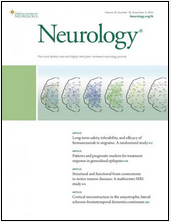 Disease of the neuromuscular junction, myasthenia gravis (MG) is often associated with thymus defedts (hyperplasia, thymoma). It is characterized by fluctuating muscle weakness, which is aggravated by exertion. In 40 to 50% of cases, its first manifestations in adults only concern eyes (ptosis, diplopia).
Disease of the neuromuscular junction, myasthenia gravis (MG) is often associated with thymus defedts (hyperplasia, thymoma). It is characterized by fluctuating muscle weakness, which is aggravated by exertion. In 40 to 50% of cases, its first manifestations in adults only concern eyes (ptosis, diplopia).
Therapeutic research in MG is very intense. Based on the most recent publications, an international group of experts met, under the aegis of the Myasthenia Gravis Foundation of America, to update recommendations published in July 2016. Their new version focuses in particular on thymectomy and treatment of the ocular form of the disease. It also details:
- the place of two biotherapies
Rituximab remains, as in 2016, recommended for the early treatment of patients with refractory myasthenia gravis with anti-MuSK autoantibodies. While its effectiveness against anti-RACh remains uncertain, experts still consider it as a treatment option when other immunosuppressants fail or lead to adverse drug reactions. Likewise, eculizumab should be an option to treat generalized myasthenia gravis with severe and refractory anti-RACh after vaccination against meningococcal meningitis. Its place in the therapeutic strategy could still evolve.
- MG associated with immune checkpoint inhibitors (ICI)
These anticancer drugs are used to treat a growing number of tumors and their use is sometimes accompanied by autoimmune side effects, such as MG (often severe) or inflammatory myopathy. So far, according to experts, no solid data support the test for anti-RACh autoantibodies before starting such treatment. Already having MG is not an absolute contraindication, as long as the disease is controlled and a close clinical monitoring is carried out, and the combination of two types of ICI is avoided. The occurrence of MG with ICI may require high dose corticosteroid therapy and plasma exchange, the decision to stop being based on the oncological situation.
